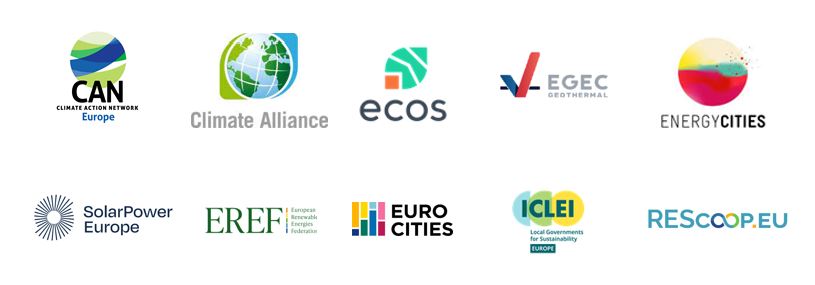LETTER
Renewables are a key part in the transition towards a net zero emissions economy. Combined with energy savings, the various renewable energy sources provide a cost-effective and readily available solution to reduce greenhouse gas emissions in a relatively short timescale.
If we want to limit dangerous climate change, then increased climate and energy targets are required. The publication of the Fit for 55 Package is a key moment to showcase the willingness to strengthen the relevant legislation, including the Renewable Energy Directive.
If we are to achieve the Paris Agreement’s objective to limit temperature rise to 1.5°C, the EU will need to go well beyond its current at least -55% emission reduction target by 2030. As a consequence, the EU 2030 renewable energy target also needs to increase in line with higher climate ambition, going far beyond the 40% indicated in the EU 2030 Climate Target Plan. Several energy scenarios have shown that a higher renewable energy target is within reach, affordable and needed[1].
Reliability of national renewable energy policies is needed more than ever. We are concerned that the current non-binding nature of the national targets will pose challenges with ensuring their delivery. We need clear trajectories supported by well defined policies which increase predictability for all market participants. In addition to a higher EU 2030 renewable energy target, we therefore also call for the reintroduction of binding national targets and a robust policy framework. This will guide Member States in developing strong national measures, ensuring the opportunity for citizens and communities to engage in the energy transition and planning for policies that mutually reinforce renewables deployment and biodiversity protection.
The Renewable Energy Directive pursues the goal of promoting renewable energy sources and aims at creating an enabling framework for further deployment of renewables in different sectors. The scope of the Renewable Energy Directive should exclusively remain for all renewables under sound sustainability criteria. Therefore its revision should not include any provisions that incentivise “low-carbon” (fossil) fuels and non-renewable energies, nor should they count towards the EU’s binding 2030 renewable energy target.
We are convinced that the above mentioned elements are key to ensure a solid policy framework for the increased deployment of renewable energy. We thank you for your consideration.
[1] See: LUT University & SolarPower Europe, 100 % Renewable Europe (2020), CAN Europe & EEB, Building a Paris Agreement Compatible (PAC) energy scenario (2020)




